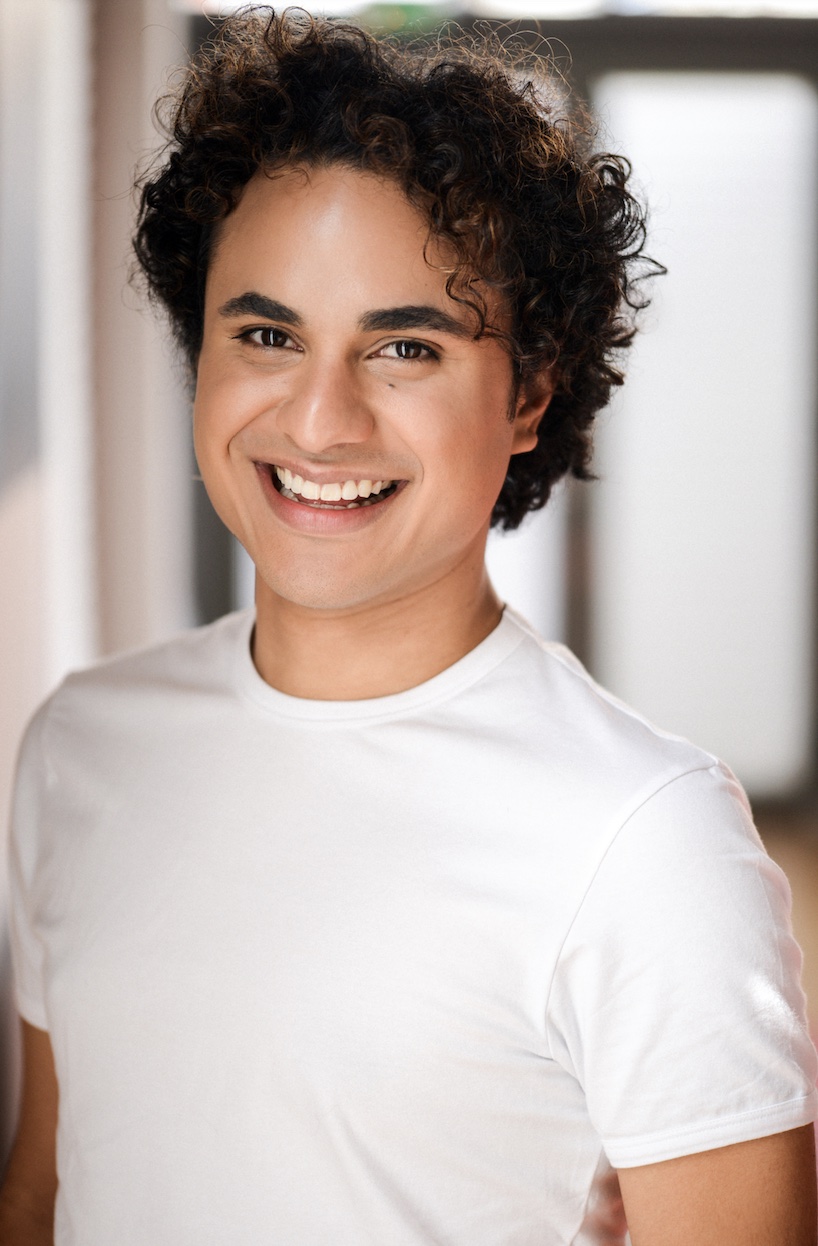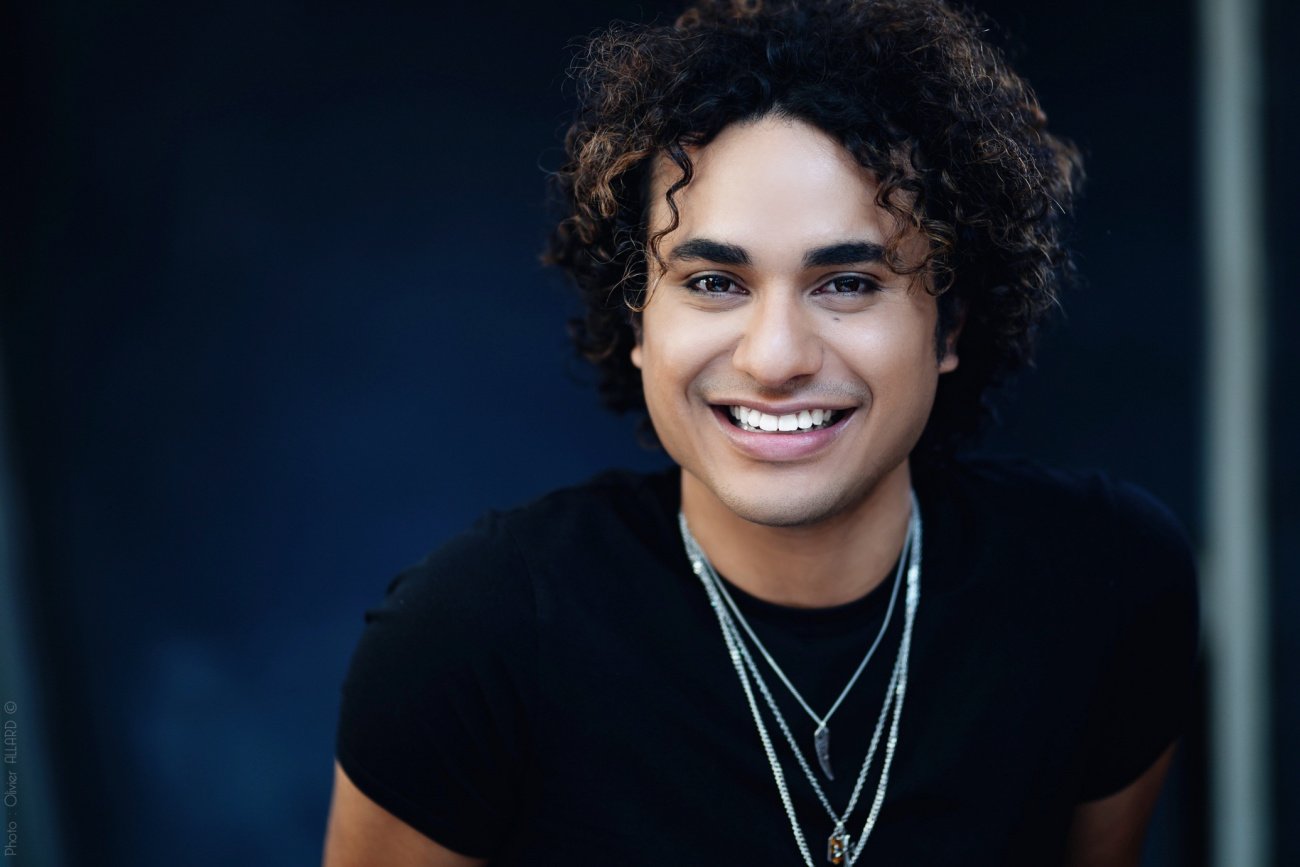People in the News
New Artist of the Month: Male Soprano Samuel Mariño
 At 27-years of age, big things are happening for Samuel Mariño. His debut recording has just been released on the Orfeo label, and he’s recently signed to HarrisonParrott, one of the few agencies to buck the trend in 2020. He’s also a genuine phenomenon: a male soprano that is an unbroken voice, as opposed to a countertenor trained to sing falsetto. His repertoire extends from the glories of the Baroque to traditional roles like Cherubino and the feisty Fiorilla, heroine of Rossini’s Il Turco in Italia.
At 27-years of age, big things are happening for Samuel Mariño. His debut recording has just been released on the Orfeo label, and he’s recently signed to HarrisonParrott, one of the few agencies to buck the trend in 2020. He’s also a genuine phenomenon: a male soprano that is an unbroken voice, as opposed to a countertenor trained to sing falsetto. His repertoire extends from the glories of the Baroque to traditional roles like Cherubino and the feisty Fiorilla, heroine of Rossini’s Il Turco in Italia.
Listening to his disc of rarely recorded arias by Handel and Gluck, it becomes clear that Mariño is a sensitive musician with an impressive agility, but it’s the vocal timbre that knocks you for a loop. The voice is high, snugly focused, and with a piping, silvery quality colored with a delicate, fluttery vibrato.
Given that his first professional engagement was only in 2018—in Handel’s Berenice in Halle—it’s been a rapid career trajectory. “Two-and-a-half years in the business? My God, it feels like an eternity!” he trills during our Zoom meet-up, a conversation full of good-humor during which he introduces me to the fruits of his first paycheck, Leia, an adorable King Charles Spaniel whose ears reminded him of Carrie Fisher’s distinctive bunches in Star Wars.
These days he lives in Germany where, like many singers, he is a tax resident—"I appreciate small apartments—they’re easy to clean,” he jokes. As we speak, he’s in Halle singing the title role in Handel’s Teseo. In his downtime he reads—studiously—or flies to Salzburg for classes with his mentor, Barbara Bonney. “I spend hours and hours working every day—I’m the kind of person who gets up at six every morning,” he admits. “I have a passion for work. What is too easy is too boring.”
"You should do something artistic..."
Born in Venezuela to university-teacher parents, Mariño started piano at six and soon after joined a choir. Five years later he swapped piano for ballet classes, definitely his first love. As a student he loved biology, but wiser heads prevailed. “My mother told me, ‘no, you are not like your brother or your sister, you should do something artistic,’” he explains.
At age 16, he opted to study painting and design, but felt his talent was insufficiently remarkable. “When I make something, I want to be the best,” he laughs. His next choice was to become a ballet dancer, but his mother warned him that he would be frustrated as one among many and persuaded him instead that it was his voice that was special.
Mariño, however, had not always considered that a blessing. “My voice is not completely broken,” he explains. “I had a lot of problems as a teenager. Speaking with this very high voice at high school was problematic—back then it was even higher! I suffered a lot of bullying, it was really, really difficult. Kids can be very hard. It wasn’t just one week, or one month, it was years.”
A doctor offered an operation on his larynx to lower his voice, but Mariño felt uncomfortable and decided against it. “So, with the help of a psychologist I accepted my voice,” he says. “Today I no longer think of it as something special. It’s like some people have blue eyes and brown skin and I have a high voice.”
Singing lessons started from the age of 17, though that was also tricky at times. “Teachers don’t always understand that I’m not a countertenor and I don’t use the same mechanism. It’s difficult for me to understand what I am, because I listen to myself and say, ‘you sound like a soprano’ but I look in the mirror and say, ‘you’re a man.’ And some people say, ‘you sound like a castrato’ and I say ‘yeah, but I’m not castrated,’” he laughs.
Paris is cheap?
 In 2013 he moved to France to study at the Conservatoire. “I chose Paris because it was the cheapest education,” he admits. “I knew the best school for baroque music was Basel or even the Royal Academy of Music in London, but when I looked at the prices, I thought I’d have to sell my kidneys or something.”
In 2013 he moved to France to study at the Conservatoire. “I chose Paris because it was the cheapest education,” he admits. “I knew the best school for baroque music was Basel or even the Royal Academy of Music in London, but when I looked at the prices, I thought I’d have to sell my kidneys or something.”
Clearly that didn’t hold him back. Next May he will sing the soprano version of Orfeo for the Gluck Festival in Nuremberg, followed by a newly devised baroque pasticcio in Copenhagen. He’s also planning a recital entitled “Farinelli – Malibran” for Potsdam, where he has a residency, followed by the start of another residency with the Opéra Royal in Versailles.
Passionate about historical research, he’s even founded his own outfit, Ensemble Teseo, which aims to rediscover forgotten techniques. “I’m grateful to all these conductors who bring baroque music alive again, and also to singers like Bartoli and Jaroussky. But I think the time for more detailed research is arriving,” he explains. “For example, the art of ornamentation and also phrasing, the [use of] dissonance, all these things I want to bring back myself. And I’m not just a one-century guy—I want to mix everyday music, like Beyoncé and Britney Spears, with baroque music.” (And don’t think he’s joking—this is a man who has sung Maria in West Side Story, frock and all).
Bursting with positivity, these days Mariño has little time or cause to worry about his voice. “I like to think that I take my voice and I put it into the music, I don’t put the music into my voice,” he says. “I can sing everything, really, for me there is no limit, but I will always sing in the way that suits, not my voice, but the music.”
Photo credits:Liza-Miri (top);Olivier-Allard





 FEATURED JOBS
FEATURED JOBS

 RENT A PHOTO
RENT A PHOTO


